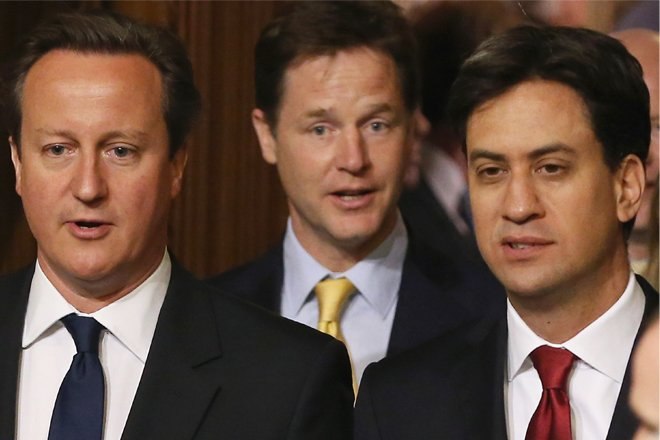One in five members of the public believe big business is listened to most by political parties when forming their manifesto.
Do manifestos matter? Do the public ever read them? Would they believe them if they did? As the political party conference season fired the starting gun on the next general election, YouGov looks at who the general public and Parliamentarians think shape party manifestos and who has most say in the policies that will be the platform on which political parties will fight the General Election 2015.
The evidence suggests that manifestos rarely cut through with the public and, when asked, they believe few of the promises that are made within them. In 2011 YouGov tested five Labour and five Conservative promises and asked whether respondents believed that, if elected, they would keep or break each promise. None of the ten promises was believed by a majority of electors.
Nevertheless, manifestos are important to parties as they lay out the potential legislative platform of the next government. Businesses, trade bodies and charities, often with the help of professional lobbyists, spend significant time, effort and money attempting to understand and influence the main parties’ manifestos. Promises are made and, despite public scepticism, being on the wrong side of a manifesto pledge can prove costly, just ask Heathrow Airport.
YouGov decided to take a close look at who the public, and MPs, believe is listened to most when parties form their manifestos. We asked MPs about their own party’s manifesto specifically and the public about manifestos more generally. Through the YouGov MPs Omnibus research, which interviews 100 MPs eight times annually, and the YouGov Omnibus, polling 2000 members of the General Public daily, we asked ‘Which one group do you believe is listened to most when a party forms its manifesto for the forthcoming general election?’.
Nearly half (48%) of all the 100 MPs polled via YouGov’s MPs Omnibus, a representative sample of the House, said a ‘small group close to the party leader’ is listened to most. This option was also the top answer, though not nearly as strongly, amongst the public where 23% felt this was the case.
However the public and politicians are hugely divided when it comes to big business with just 1% of MPs saying big businesses is listened to most in forming their party’s manifesto while one in five (20%) of the voting public believe big business is listened to most. When it comes to the electorate being listened to most just 4% of the British voting public believe the electorate are at the centre of the manifesto process. More than one quarter of MPs (27%) believe the electorate is at the heart of the process.
Members of the public also felt, by 36% to 31%, that parties were more likely to listen to external influences such as big business, think tanks and the public than internal sources, such as those close to the party leader and MPs. This may indicate that the public believes parties are more swayed by pleasing external groups than sticking to their core values.
Our research suggests a clear division between the views of the public and politicians as to who is most listened when it comes to developing policy for manifestos. While on the face of it this may not be the central issue, the efficacy of these policies and how they benefit people’s lives will be key at the next election. What should worry politicians, and businesses, is the view amongst the public of the role of business. This is a potential area challenger parties could look to exploit when confronting what they might paint as the protection of vested interests of the establishment.
See the full MPs Manifestos results
See the full Public Manifestos results
Image PA









